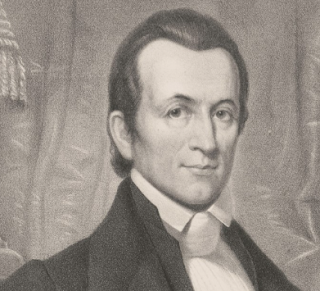 |
| After the shooting, Trump raises his hand to encourage his base |
On 13 July 2024, a person opened fire at presidential candidate Donald Trump at a Trump Rally in Pennsylvania. While Trump survived, two others (David Dutch and James Copenhaver) were wounded and one (Corey Comperatore) was killed. The secret service opened fire and killed the shooter. Trump later would attribute his safety to a chart (Trump shifted his head to look at it, causing the shooter to hit Trump's ear), the secret service, and God.
The purpose of this post is not to talk about the politics, security or even any conspiracy regarding the incident. This blog is a theological blog, and I will give my theological thoughts on this.
Is Trump the anti-Christ or the chosen one?
As with any major public event, there many Christians who are too hasty to condemn or praise Trump.
Because of Trump surviving a head wound and Revelations 13, some point out that that he could be the anti-Christ, or the beast of the anti-Christ.
One of its heads seemed to have a mortal wound, but its mortal wound was healed, and the whole earth marveled as they followed the beast. - Rev 13:3
On the other extreme end, some supporters see him as divinely chosen as he was shot at 6:11 pm.
Put on the whole armor of God, that you may be able to stand against the schemes of the devil - Ephesians 6:11
As with any interpretation, Christians ought to be open but cautious. In fact, the Bible itself encourages believers to be wary of following such trends.
Beloved, do not believe every spirit, but test the spirits to see whether they are from God, for many false prophets have gone out into the world. 2 By this you know the Spirit of God: every spirit that confesses that Jesus Christ has come in the flesh is from God, 3 and every spirit that does not confess Jesus is not from God. This is the spirit of the antichrist, which you heard was coming and now is in the world already. - 1 John 4: 1-3
In my sceptical mind, I reject notions him being the anti-Christ because his wound was obviously not fatal. And I also reject the use of Ephesians 6:11 to support Trump as it is obliviously arbitrarily chosen. Why not John 6:11 or Hosea 6:11?
 |
| Was his survival the luck of the draw? |
How did Trump see his survival?
On 19 July 2024, Trump gave a speech at the Republican National Convention. As part of his speech, he covered the assassination attempt from his point of view. I put a few quotes below:
"There was blood pouring everywhere, and yet in a certain way I felt very safe because I had God on my side."
"I stand before you in this arena only by the grace of almighty God."
"But if the events of last Saturday make anything clear, it is that every single moment we have on Earth is a gift from God. "
Trump felt that his survival was due to the intervention of God. In my opinion, his speech at the RNC surprisingly showed much humility as he thanked the Secret Service for protecting him and his supporters for not panicking at the event.
"Bullets were continuing to fly as very brave Secret Service agents rushed to the stage. And they really did. They rushed to the stage."
"This massive crowd of tens of thousands of people stood by and didn’t move an inch. In fact, many of them bravely but automatically stood up, looking for where the sniper would be. They knew immediately that it was a sniper. And then began pointing at him. You can see that if you look at the group behind me. That was just a small group compared to what was in front. Nobody ran and, by not stampeding, many lives were saved."
He also provided a moment of silence for Corey Comperatore, a retired fireman who was killed, shielding his family from the bullets.
His speech was also more unifying than usual.
"As Americans, we are bound together by a single fate and a shared destiny. We rise together. Or we fall apart. I am running to be president for all of America, not half of America, because there is no victory in winning for half of America."
Now I do not know how much God intervened for Trump's survival, but I do know that whatever happens, God is in charge.
"The lot is cast into the lap,
but its every decision is from the Lord." - Proverbs 16:33
Looking ahead
Now whether America becomes more or less divisive from this incident, or whether Trump goes back on his speech of unity remains to be seen.
Regardless of outcome, know that God is ultimately in control.
Do you not know? Do you not hear?
Has it not been told you from the beginning?
Have you not understood from the foundations of the earth?
It is he who sits above the circle of the earth,
and its inhabitants are like grasshoppers;
who stretches out the heavens like a curtain,
and spreads them like a tent to dwell in;
who brings princes to nothing,
and makes the rulers of the earth as emptiness. (Isaiah 40: 21-23)



















.jpg)





